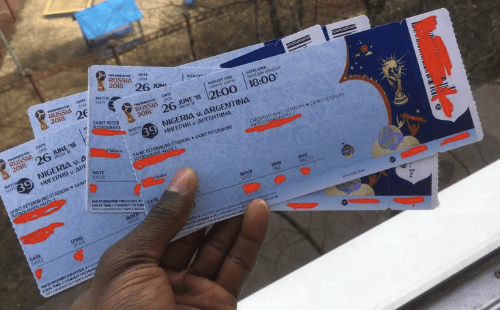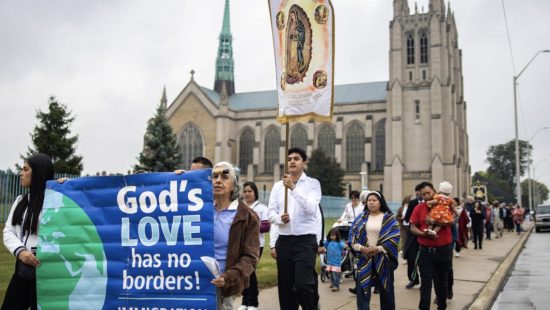The National Registry of Exonerations (the Registry) reports all known exonerations in the United States since 1989. Of the more than 2,400 exonerated defendants currently in the database, 281 are classified as Latinx. In many ways, their cases resemble those of other exonerees. The same factors that produced false convictions of non-Latinx defendants—including mistaken eyewitness identification, misconduct by police and prosecutors, and perjury—were also at work in Latinx defendants’ cases.
There are, however, differences both in the types of crimes for which Latinx exonerees were convicted and in the ways in which they were vulnerable to the errors and misconduct that produce false convictions. Moreover, the consequences of a false conviction—though calamitous for anyone—may be more pronounced for Latinx defendants with precarious immigration status.
In a story from UCLA, it explains the factors in which many of them were exonerated — the nature of the crimes, the factors that contributed to their wrongful convictions, and how their cases compare to non-Latinx exonerees. It also examines ways in which Latinx defendants may be vulnerable to wrongful convictions, using case studies to explore how language barriers, racial profiling, and immigration concerns can be exploited in their cases. Finally, it discusses the barriers to exoneration and how falsely convicted Latinx defendants may be particularly disadvantaged when seeking to overturn their convictions.
Innocent Latinx people are uniquely vulnerable to wrongful conviction because of concerns over immigration status, according to a recent study published in the UCLA Law Review. Innocent Latinx immigrants are more vulnerable to pleading guilty to crimes they didn’t commit under threat of deportation and law enforcement officers have used witnesses’ immigration statuses to manipulate their testimony.
Even after innocence is established and a conviction is overturned, Latinx immigrant exonerees can still face deportation or other immigration issues. This means that despite being cleared of all charges and having years of freedom stolen by wrongful imprisonment, some Latinx immigrant exonerees must continue fighting the legal system.
“The detective saw me as someone who was disposable. They saw a young Latino male and thought I was ‘just another criminal,’” Mr. Bermudez said.
Most Latinx people in the U.S. are U.S. citizens, but in some cases, they face similar challenges to wrongfully convicted Latinx immigrants. In several cases, U.S. citizens have been wrongfully convicted of entering the country illegally or committing another immigration violation, and were exonerated only after proving that they had been citizens all along.
Also, Latinx exonerees, both immigrants and citizens, may be more vulnerable to wrongful convictions due to language barriers. Though not all Latinx people face language barriers and not all people who face language barriers are Latinx, nearly 30% of the U.S. Hispanic population does not consider itself proficient in English, according to a Pew Research poll.
Language barriers not only pose a challenge to the wrongfully accused, they also constitute a hurdle for the wrongfully convicted when it comes to seeking justice and surviving wrongful imprisonment.
Racial bias, poverty, and wrongful conviction
When it comes to wrongful conviction, poor people and people of color are especially vulnerable at every point in the legal process.
Nearly 1 in 5 Hispanic people in the U.S. lives in poverty, a rate 6% higher than the national average. And while most people in prison are poor, women and people of color are among the poorest, with incarcerated Hispanic women seeing the lowest median annual income prior to being incarcerated.
People living in poverty who are wrongly accused of crimes are less likely to be able to afford the help they need and less likely to have the resources needed to adequately investigate their cases, according to the Equal Justice Initiative.
Racial bias also taints suspect development.
“I really feel that race and my ethnicity was a factor in my wrongful conviction,” exoneree Fernando Bermudez told the Innocence Project. Mr. Bermudez was wrongfully convicted of a 1991 murder in New York City and spent 18 years in prison before his 2009 exoneration. He is believed to be the first Latin American man in New York State exonerated on “actual innocence” grounds.
“The detective saw me as someone who was disposable. They saw a young Latino male and thought I was ‘just another criminal,’” Mr. Bermudez said. Based on his ethnicity and the mostly Latinx neighborhood of Washington Heights where he grew up, officers assumed that Mr. Bermudez was not well educated. In fact, he was headed to college.
The officers didn’t pursue other suspects and ignored other leads, Mr. Bermudez said. And when interrogating his friend, an alibi witness, the detective asked him why, as an Italian American, he was friends with a Latino man and referred to Mr. Bermudez using a racial slur. In a recorded conversation with Mr. Bermudez’s private investigator in 1992, the same detective said that if Mr. Bermudez hadn’t been convicted of this crime, he would “be in jail anyway” for some other crime.
Studies have shown that policies and tools currently used to develop suspects often rely on databases, like gang databases, and technologies built on algorithms, such as predictive policing, that have disproportionate racial impact. The use of and reliance on such tools for the development of suspects can become the first step on the path to wrongful conviction.
Because law enforcement may designate a Latinx person as Black or white based on visual cues in the arrest records and court reports on which studies rely, the full extent to which wrongful conviction affects Latinx people in the U.S. may be underestimated.
But for those who have lived through wrongful conviction, the impact is clear.








